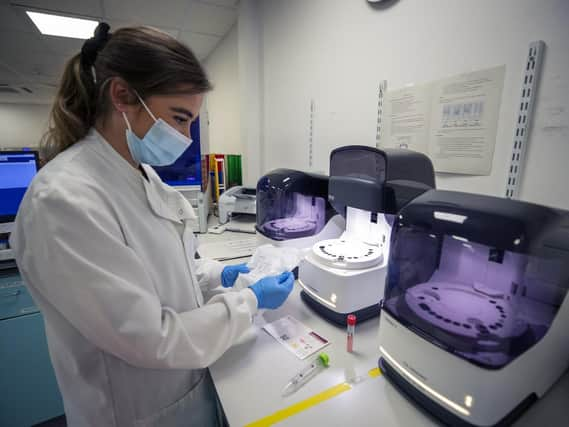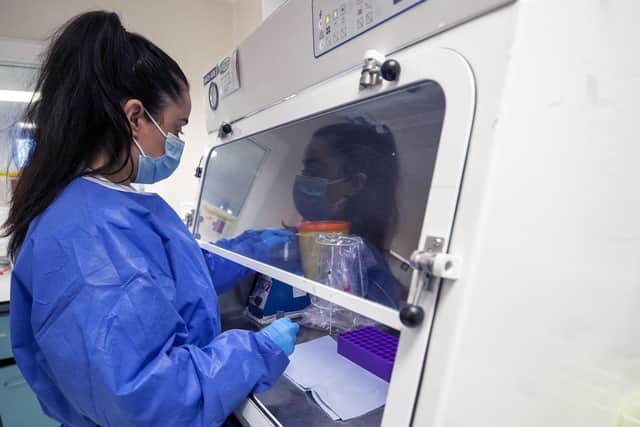Covid-19 pandemic could be key to unlocking new generation of female scientists, coders and engineers, say Yorkshire education experts


Education leaders say they have seen uptakes in applications for STEM (science, technology, engineering and mathematics) courses over the past year, particularly among female students.
Meanwhile, even more young people have been inspired to apply for health and social care-related courses after seeing the vital roles played by nurses, paramedics and carers over the past 12 months.
Advertisement
Hide AdAdvertisement
Hide AdWhile medicine courses have seen female applicants overtake male counterparts in recent years, women still remain under-represented in most STEM industries - particularly engineering and technology - all of which have been huge contributors in tackling the coronavirus crisis.


The University and College Admissions Service (UCAS) revealed that applications for health-related higher education courses rose by nearly 27 per cent last year (from 317,730 to 402,570), with around three quarters of these applications from female students.
It follows UCAS also revealing last month that applications for nursing courses soared by almost a third (32 per cent) last year, of which more than 90 per cent were female.
Jim Robinson, who is Assistant Principal at New College Bradford, said: "Reading through students' personal statements over the past year, what has really come across is the influence of the pandemic on them having seen the crisis play out on the news, as well as the outpouring of respect for the NHS.
Advertisement
Hide AdAdvertisement
Hide Ad"A lot are saying how they have had relatives who have had Covid or even died.


"Most of our students are from around Bradford which has had high infection rates, so students are seeing this and wanting to help. They're wanting to go away to study so they can become scientists or radiographers, then come back and help here in the community.
"People just really want to work for the NHS."
Mr Robinson said the majority of applications received by the college were for health-related courses such as nursing, radiography and paramedic science, and that "the majority" of these were from girls or women.
One leading virologist at the University of Leeds said it was too soon to see any noticeable uptake in the gender divide in her field, but hoped the pandemic may impact this in the future.
Advertisement
Hide AdAdvertisement
Hide AdProf Nicola Stonehouse, who specialises in viral proteins and is currently overseeing the development of a new Polio vaccine, said women become "fewer and further between" the higher up you look in the field.
Sowmya Mony, from Sheffield, was a website developer who retrained to teach computer science through the Transition to Teach programme, with the aim of inspiring more girls to take up the subject.
She said the pandemic had helped students "to appreciate and see the value of technology and engineering", especially as society has depended upon it in the shift to working and socialising from home, while the apparent security of jobs in tech companies over the past year also made them more desirable.
"Science and technology companies have been able to provide the infrastructure to keep the country running – this could be one of the reasons students are inspired to think of a career in STEM," she told The Yorkshire Post.
Advertisement
Hide AdAdvertisement
Hide Ad“There can still sometimes be the perception that only boys like gaming and computing, and I hope that the pandemic and children’s greater exposure to technology, will encourage more girls into STEM subjects helping them to see the value in technology in day to day life."
Support The Yorkshire Post and become a subscriber today. Your subscription will help us to continue to bring quality news to the people of Yorkshire. In return, you'll see fewer ads on site, get free access to our app and receive exclusive members-only offers. Click here to subscribe.
Comment Guidelines
National World encourages reader discussion on our stories. User feedback, insights and back-and-forth exchanges add a rich layer of context to reporting. Please review our Community Guidelines before commenting.